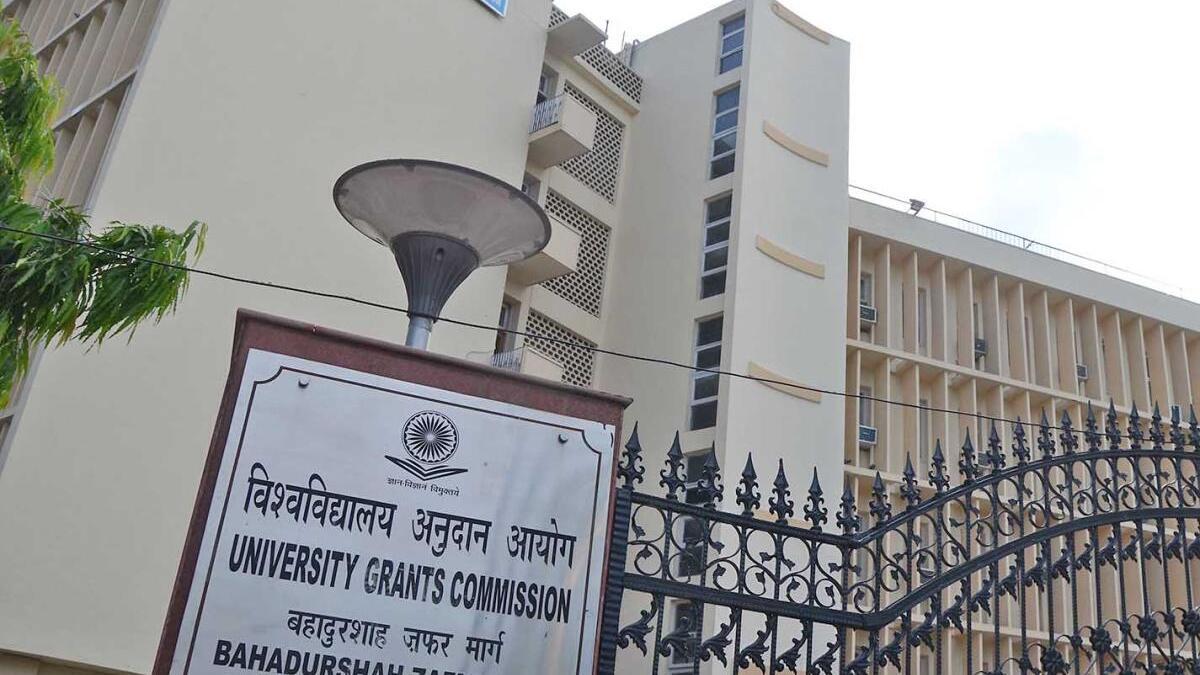Mathematicians revolt against UGC’s draft curriculum, warn of ‘irreparable damage’
By | Education | 19-Sep-2025 16:35:39

News Story
Nearly a thousand mathematicians, researchers, teachers, and graduate students have signed a petition demanding the immediate withdrawal of the University Grants Commission’s (UGC) 2025 draft curriculum for undergraduate mathematics.
The signatories have described the proposed framework as “riddled with grave defects” and warned it could “damage the prospects of generations of students” if implemented.
The petition, addressed to the UGC, calls for a fresh drafting committee comprising expert mathematicians and undergraduate teachers. It criticizes the draft for failing to adequately cover foundational subjects such as real analysis, algebra, and linear algebra — the very pillars of higher mathematics. Algebra, the petition notes, has been “crammed into one semester,” while real analysis is introduced so late that natural follow-up courses cannot be offered.
The experts also object to the outdated emphasis on subjects like analytical geometry and mechanics—remnants of a colonial-era syllabus—while applied mathematics, programming, and numerical methods have been relegated to the margins.
Statistics, they argue, has been “stuffed into a single course,” leaving no space for the practical, application-based training essential for fields like machine learning and artificial intelligence.
Citing glaring inconsistencies, the petition highlights how several electives demand knowledge not covered in the basics. For example, a course on Mathematics in Music claims to require only Class 10-level maths, yet its content includes Fourier analysis and Markov chains—well beyond that level.
Similarly, the course on Mathematics for Machine Learning tries to introduce fundamental concepts of sets, functions, and vector spaces, but with just 15 hours left for actual machine learning, it does “justice to neither.”
The petitioners further warn that the draft curriculum leaves students unprepared for postgraduate study, industry roles, or research. “The inadequacy of the courses is all the more glaring because a student graduating after four years is eligible to write the NET exam and qualify for a Ph.D.,” they note.
Equally troubling, they argue, are the incoherent and misplaced electives — from Mathematics in Meditation to courses in the arts—that stray far outside the expertise of most mathematics faculty. The so-called “value-added” courses meant to align with the National Education Policy, they say, are “poorly conceived” and add little beyond high-school-level knowledge.
The petition also points out serious academic lapses, including references to textbooks and authors that “do not exist.” Examples cited include Rudin on Mathematics in Physics and Mirabai Starr on Mathematics in Meditation.
“A nation with a long tradition of excellence in mathematics deserves a much better undergraduate curriculum,” the petition asserts. “Our purpose is the same as that of the UGC—to give future generations of Indian students the best education possible.”